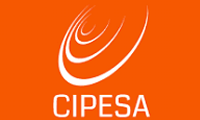READ MORE ON THE PROJECT HERE
The study found that using ICT tools for governance offers greater chances for effective two-way interaction between citizens and government, when the tools are low-cost and non-Internet basedsuch as radio and feature phones. A summary of the project can be found hereand the report is available for download here.
(Participants receive the ICT and Governance in East Africa 2014 report)
iHub Research went back to the study sites to share the findings from the study and to hold discussions with ICT and Governance stakeholders on the findings as well as the recommendations made in the study. At the end of June, iHub Research was in Kampala where we conducted a forum at HiveColab. We were joined by Collaboration on International ICT Policy in East and Southern Africa (CIPESA) who made a presentation on the projects they are running. Read more on the work by CIPESA here.
(Ashnah Kalamera – Programmes Associate, CIPESA)
It was expected that the most pressing questions from the participants at the forum would be, ‘what is the implication of these findings?’ The findings from this study are important as they make recommendations on how stakeholders can make the most from their investments in ICT and Governance in terms of achieving the goal of facilitating successful two-way interaction between citizens and government. Having found that there exist numerous mobile phone and web applications for governance whose uptake is low, and further finding that this is due to a design-reality gap, the report recommends that citizens should be consulted to establish their needs while designing the ICT and governance initiatives. The report further recommends that low cost and non-Internet based ICT tools should be favoured due to their technical accessibility and their affordability. Another emerging question from this dissemination forum was on practical impacts of ICTs and governance at the national level of government since most of the cases that were presented were local examples such as, Women of Uganda Network’sVoluntary Social Accountability committees which monitor service delivery using digital cameras, the SMS system of reporting human rights abuse used by the Commission for Human Rights and Good Governance (CHRAGG)in Tanzania, andRadio Amani’s listener fan groups in Nakuru, Kenya. The study was not specifically focused on local level or national levels of government; it was on mapping the ICT tools used for two-way interaction between citizens and government. Looking at the impact of these tools on national level government is an area that can be explored and researched on from different perspectives.
We will be holding a dissemination forum in Dar es Salaam on the 30th of July 2015 to share the findings from this study. We invite you to join us by registering here.


